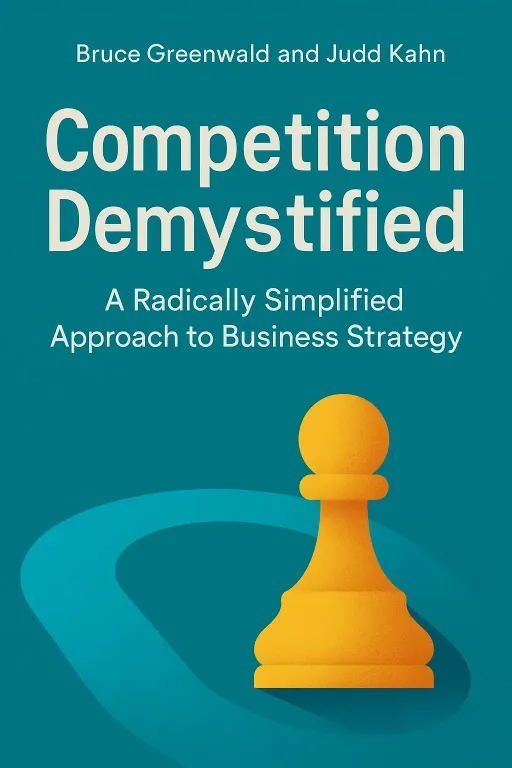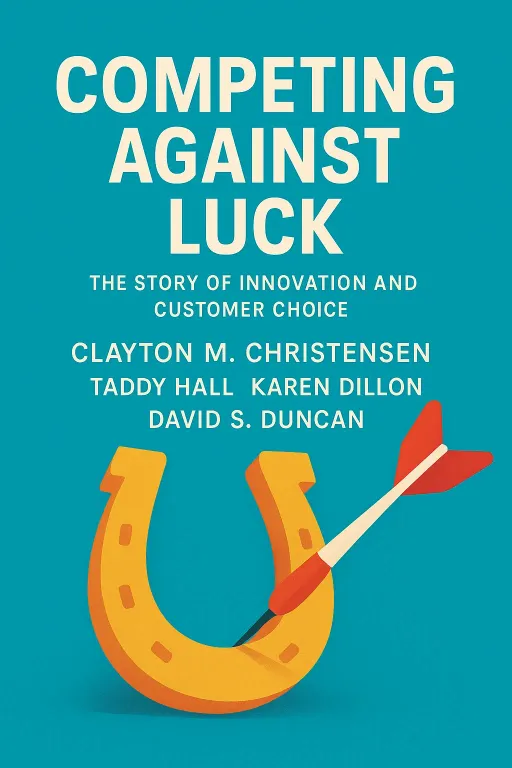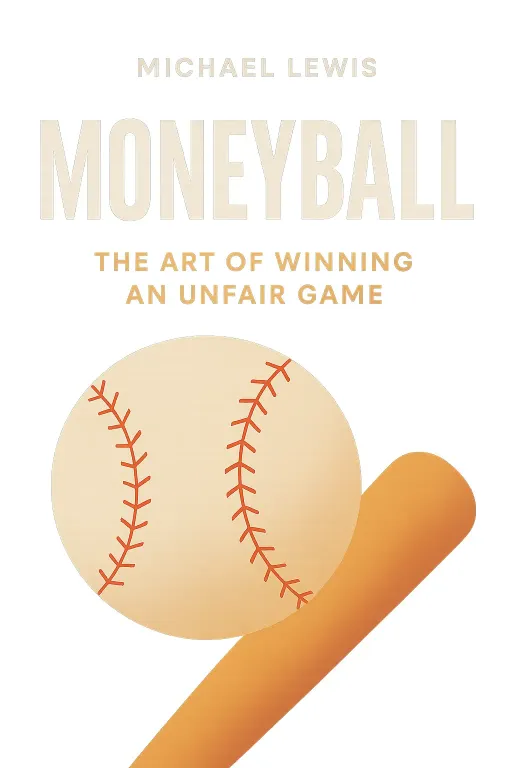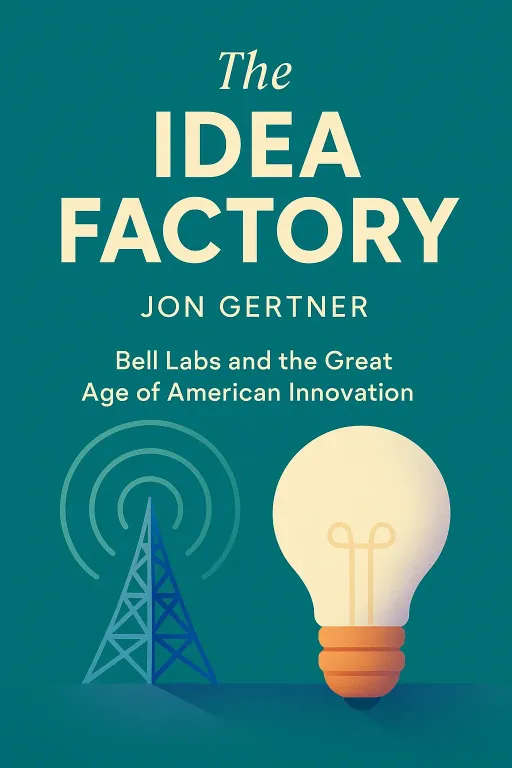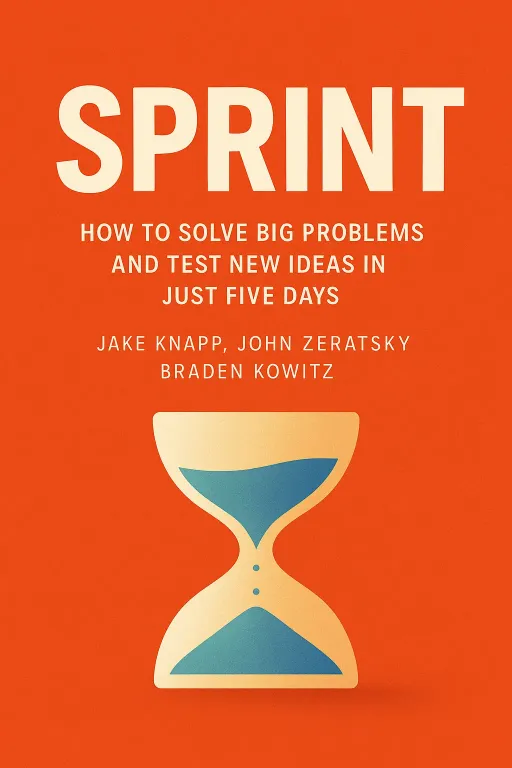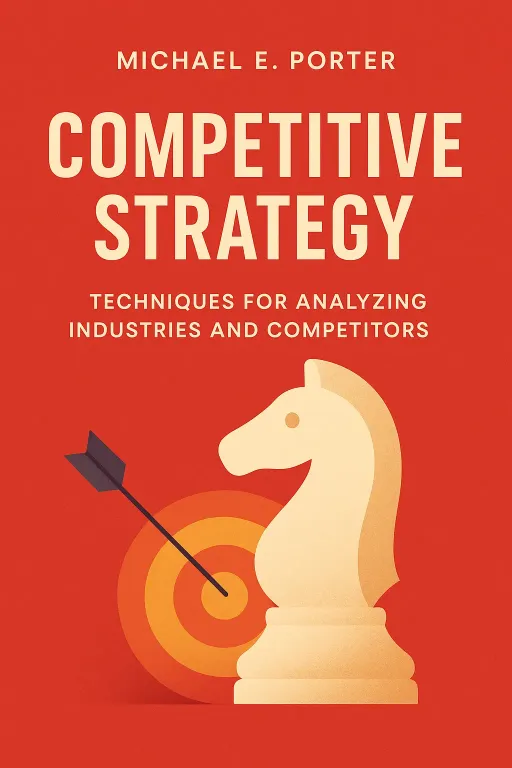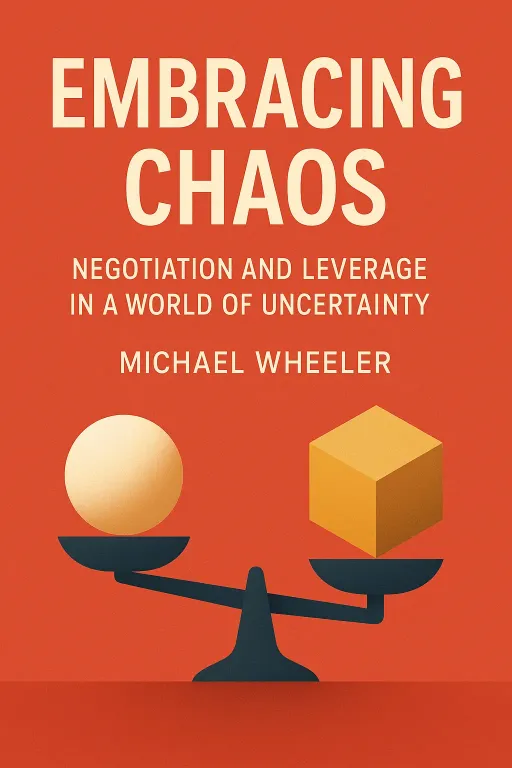
The Power of a Failed Plan
15 minGolden Hook & Introduction
SECTION
Joe: The best deal you'll ever make might be the one you completely failed to get. In fact, your brilliant, detailed negotiation plan could be the very thing that guarantees you lose. Lewis: Wait, what? All I ever hear is 'fail to prepare, prepare to fail.' You're saying my prep is the problem? My beautiful, color-coded binder is my enemy? Joe: It just might be. And that's the core, counterintuitive idea in Michael Wheeler's fantastic book, The Art of Negotiation. The opening chapter is literally titled "Embracing Chaos." Lewis: "Embracing Chaos." That sounds like the title of a self-help book for toddlers. Joe: You'd think so, but this isn't just some pop-psychology guru. Wheeler is a long-time Harvard Business School professor who spent two decades as the Editor in Chief of the Negotiation Journal. He's basically taking a critical look at the rigid, plan-heavy negotiation models—like the famous Getting to Yes—that even his own institution made famous. Lewis: Okay, a Harvard professor telling you to throw out the plan. I'm listening. Where does he even start with an idea like that?
The Counterintuitive Power of Chaos: Why Your Plan is Already Wrong
SECTION
Joe: He starts with one of my favorite business stories ever, about a guy named Jay Sheldon and a cable company deal that went completely wrong... and then spectacularly right. Lewis: I like the sound of that. Let's hear it. Joe: Alright. So, some years ago, Jay Sheldon, an investment manager, buys a small cable TV company for about $8 million. He and his partners work hard, turn it around, and it becomes quite profitable. Naturally, they want to expand. They set their sights on a second cable company in a neighboring city. Lewis: Makes sense. Standard business growth. Joe: Exactly. They do their homework, run the numbers, and decide their absolute maximum price for this second company is $12 million. Not a penny more. That's the plan. So Jay Sheldon goes into negotiations with the owner. Lewis: And I'm guessing the owner has a different number in mind. Joe: A very different number. After two months of back-and-forth, it's crystal clear the owner wants $15 million. He won't budge. Jay sees this as completely unrealistic. The negotiation is a total failure. It's a stalemate. Lewis: Right, so this is where most of us would pack up our briefcases, mutter something under our breath, and go home defeated. The plan failed. Joe: This is the moment. The plan is dead. But instead of walking away, Sheldon, in a moment of what Wheeler would call strategic improvisation, does something brilliant. He stops trying to buy and just gets curious. He turns to the owner and asks a simple question: "Out of curiosity, how much do you think my cable company is worth?" Lewis: Oh, that's an interesting question. What did he say? Joe: The owner, without much hesitation, says he figures Jay's company is worth a solid $14 million. Lewis: Hold on. So the guy won't sell his company for less than $15 million, but he thinks Jay's, which is very similar, is worth $14 million? Joe: Precisely. And in that instant, Jay Sheldon sees it. The entire negotiation flips on its head. He stops being the buyer and becomes the seller. He says, "Okay, how about you buy my company for $14 million?" And they did. He sold his own cable system for almost twice what he had paid for it just a couple of years earlier. Lewis: Whoa. So he walked in to buy a company and walked out having sold his own for a massive profit. That's not a negotiation; that's a magic trick. Joe: It feels like it! But Wheeler argues it's not magic, it's a mindset. Sheldon won big because his initial plan failed. He was forced to abandon his blueprint. And in that moment of chaos, a much better opportunity revealed itself. He was in what Wheeler calls a rapid cycle of learning, adapting, and influencing. Lewis: I can see the 'adapting' part, but how is that a reliable strategy? It feels like catching lightning in a bottle. Most of us would just get frustrated and walk away. How do you avoid the opposite, the 'lose-lose' situation? Joe: That's the critical question. Wheeler provides the perfect cautionary tale for that. It’s the story of a co-op board in an apartment building. Lewis: Uh oh. Nothing good ever starts with "a story about a co-op board." Joe: You are not wrong. The board passes a rule: all residents must install child safety bars on their windows, at their own expense. The cost is $902. One owner refuses, insisting the building should pay. The board feels its authority is challenged and decides to sue him. Lewis: Over $902? This is going to end well. Joe: It's a disaster. The board had a rigid plan: "enforce the rule, establish authority." They won the first lawsuit. The owner appealed and won. The board appealed to a higher court and won again. Then they started fighting over who had to pay the legal fees. After five years of this, the combined legal bills for both sides topped $100,000. Lewis: A hundred grand. To settle a $900 dispute. That is insanity. Joe: It's the polar opposite of Jay Sheldon. The co-op board was clinging to an obsolete plan. They were so focused on their initial blueprint that they failed to observe the reality screaming at them: this was a catastrophic, lose-lose proposition. They couldn't adapt. Sheldon embraced the chaos of a failed plan; the board created chaos by refusing to abandon theirs.
Navigating by Sight: The OODA Loop and Strategic Agility
SECTION
Lewis: Okay, so the mindset is key. Don't be the co-op board, be Jay Sheldon. But that still feels a bit abstract. If you're not following a rigid plan, what are you following? How do you actually do this in practice? Joe: And that's the perfect lead-in to the 'how.' Wheeler argues that if you're not following a map, you have to learn to navigate by sight. And for this, he brings in an incredible framework from a completely different field: military air combat. It's called the OODA loop. Lewis: OODA? Sounds like a Star Wars character. Joe: Close. It was developed by a maverick US Air Force colonel named John Boyd. He was trying to figure out why American F-86 Sabre jets were dominating the supposedly superior North Korean MiG-15s in the Korean War. The MiGs were faster and more heavily armed, but the Sabres were winning over 90% of the dogfights. Lewis: Better pilots? Joe: That was the initial thought, but it wasn't the whole story. Boyd discovered the F-86 had two key advantages: a bubble canopy that gave the pilot better visibility, and hydraulic controls that allowed them to switch from one maneuver to another more quickly. This led him to create the OODA loop: Observe, Orient, Decide, and Act. Boyd's insight was that victory goes to the side that can cycle through that loop faster. The American pilots could see more, process it quicker, and react faster. Lewis: They were more agile. They could adapt to the chaos of a dogfight in real-time. Joe: Exactly. And Wheeler says this is precisely what master negotiators do. They are constantly cycling through the OODA loop. And there's no better example of this than the story of how the Citibank Tower in Manhattan got built. Lewis: Another real estate story. These seem to be good testing grounds for chaos. Joe: The best. So in the 1970s, a young broker named Don Schnabel is hired by a church to appraise their property. The church needs money. The appraisal comes in too low. Deal's dead. But Schnabel has a bigger idea. What if he could assemble the entire block? That would be worth a fortune. Lewis: That sounds impossibly complex. You're dealing with dozens of different owners with different needs. Joe: A classic "wicked problem." He couldn't have a single, rigid plan. He had to use the OODA loop. He started by Observing. He secretly identified Citibank as a potential buyer and learned the needs of every single property owner on that block. There was Eva Trefner, who owned a Hungarian restaurant and was worried about her staff. There were two elderly sisters, Julia and Alyce, who needed help moving. There was a reclusive bachelor named Tom who wouldn't even answer his door. Lewis: So each one is a completely different negotiation. Joe: A completely different OODA loop. For the restaurant owner, he Oriented his strategy. He realized her main concern wasn't just money, it was her people. So he Decided to offer a deal that let her keep the restaurant open for another year. And he Acted. For the church, he came up with a creative condominium arrangement so they could rebuild on the same corner. For the reclusive bachelor, his strategy was patient courtship for two years. Lewis: And you can see how the other developer Wheeler mentions, Richard Bloom in Atlantic City, completely failed at this. Joe: The perfect contrast. Bloom wanted to assemble a block for a casino. His plan was simple: offer everyone $100,000, two or three times market value, but the deal was contingent on everyone agreeing. He thought peer pressure would work. Lewis: He didn't Observe or Orient. He just Decided and Acted. He had no Plan B. Joe: He had no Plan B! And when a few owners said no—not because of money, but because they just didn't want to move—his entire project collapsed. He was inflexible. Schnabel, on the other hand, had what Wheeler calls a 'robust strategy and nimble tactics.' His goal was to assemble the block, but his tactics were improvised for every single person. He was navigating by sight.
Presence of Mind: Negotiation as Jazz Improvisation
SECTION
Lewis: Okay, this is making a lot of sense. You need the mindset to embrace chaos, and a framework like the OODA loop to navigate it. But what about the person in the chair? All the strategy in the world doesn't help if you're panicking or getting angry. I'm thinking of that poor doctor in the book who was so terrified of confrontation he couldn't even ask for a leave of absence. Joe: You've hit on the final and most profound layer of the book. Wheeler calls it "Presence of Mind." And this is where his most beautiful and powerful metaphor comes in: negotiation as jazz improvisation. Lewis: Negotiation as jazz. I like that. It's less about winning and more about creating something. Joe: Precisely. Wheeler quotes the great diplomat Richard Holbrooke, who said, "It’s an improvisation on a theme. You know where you want to go, but you don’t know how to get there. It’s not linear." It requires you to be simultaneously calm and alert, patient and proactive. Lewis: And you have to really listen to the other musicians. Joe: You have to listen with your whole body! And you have to know when to solo and when to "comp"—when to accompany the other person to help them sound their best. Wheeler tells this amazing story about the legendary sports agent Donald Dell. Lewis: The guy who represented Arthur Ashe? Joe: The very same. In his early days, he's in a super tense negotiation with the racket company Head. They want to stop paying his client, Arthur Ashe, royalties. The chairman of Head, a guy named Pierre, storms into the room, red-faced, and starts yelling that Ashe is making ten times more money than he is. The whole room goes silent. Lewis: Awkward. This is where most negotiations would just explode. Joe: Total crisis point. But Dell, instead of getting defensive or yelling back, just pauses for a beat. He smiles gently. And he says, "But Pierre, Arthur has a much better serve than you do." Lewis: (Laughs) Oh, that's brilliant. Joe: The entire room burst out laughing. The tension was completely gone. They tweaked the deal and preserved a relationship that was worth millions for years to come. That, Wheeler says, is jazz. That's presence of mind. It's not a tactic you can write in a plan. It's an improvised response born of being calm, alert, and even a little playful in a high-stakes moment. Lewis: I love that. It’s about being internally centered but externally aware. But Wheeler also has this other, much less pleasant-sounding term. He calls negotiation a "wicked learning environment." That sounds less like fun jazz and more like... well, hell. Joe: That's the paradox, and it's what makes this so difficult. A "kind" learning environment is like shooting free throws. You shoot, you see if it goes in. The feedback is instant and perfect. A "wicked" learning environment is one where feedback is delayed, ambiguous, or just plain wrong. Lewis: And that's negotiation. Joe: That's negotiation. Did you get a great deal because you were a brilliant negotiator, or was the other side just desperate? Did you fail to reach an agreement because you made a mistake, or was a deal simply impossible from the start? You rarely know for sure. The salesman who used pressure tactics on the author and lost the sale? He probably told himself, "That guy was never a serious buyer," and learned nothing. He mislearned. Lewis: So you have to learn to improvise in an environment that is actively trying to teach you the wrong lessons. That's a serious challenge. It requires a different kind of character. Joe: It does. And Wheeler quotes another diplomat, Lakhdar Brahimi, who sums it up perfectly. He says to succeed in these environments, you need to be two things at once. You need to be arrogant—arrogant enough to believe you can solve problems that look unsolvable. But you also need to be very, very humble—humble enough to know you don't have all the answers and that your plan is just a guess.
Synthesis & Takeaways
SECTION
Lewis: Arrogance and humility. That's a tough balancing act. It seems like the whole book is about holding two opposing ideas in your head at the same time. Have a plan, but be ready to throw it out. Be a tough advocate for your side, but also be a creative collaborator. Be a strategic fighter pilot, but also a sensitive jazz musician. Joe: That's it exactly. And that's the final, profound insight of the book. Embracing chaos isn't about being reckless or unprepared. It's about having the humility to know your plan is just a starting point. It's about having the strategic agility to adapt using frameworks like the OODA loop. And it's about having the presence of mind to improvise with creativity and grace, even when the world is giving you messy, wicked feedback. Lewis: It really reframes the whole endeavor. It's a shift from seeing negotiation as a battle of wills to be won, to seeing it as a complex, dynamic system to be navigated. And maybe the most important skill isn't being the toughest or the most aggressive, but being the most aware and the most creative. Joe: Precisely. The goal isn't to eliminate chaos; you can't. The goal is to make chaos your friend. Wheeler's work really pushes you to ask a fundamental question: in your life, in your work, in your conversations, are you building a rigid fortress to keep chaos out, or are you learning how to dance in the storm? Lewis: A question we should all probably ask ourselves more often. What a fascinating way to look at it. For everyone listening, think about a negotiation you have coming up—with your boss, your partner, your landlord. What's one part of your 'perfect plan' you could hold a little more loosely after hearing this? Joe: Great question. Let us know your thoughts. We love hearing from the community. Lewis: This is Aibrary, signing off.
